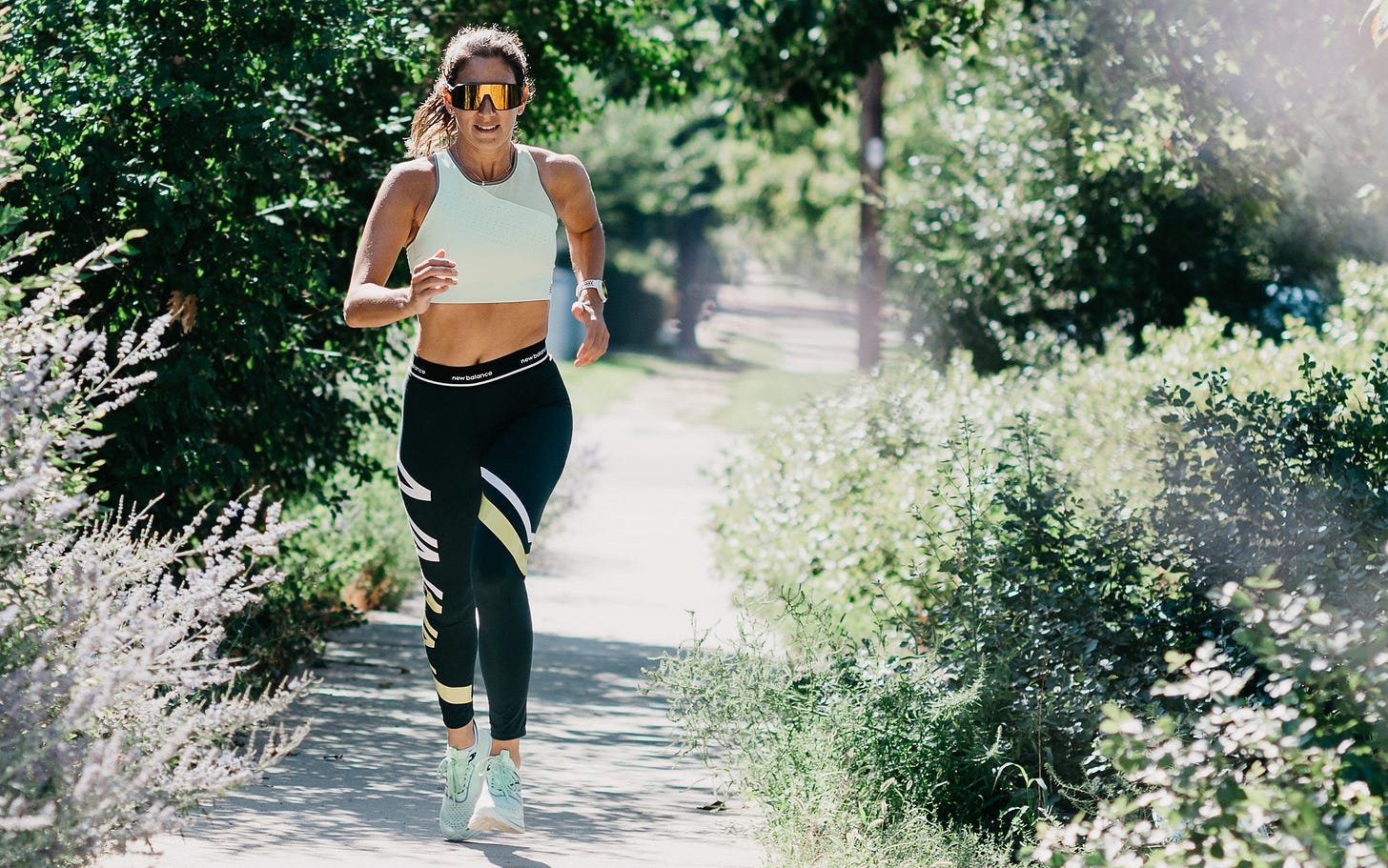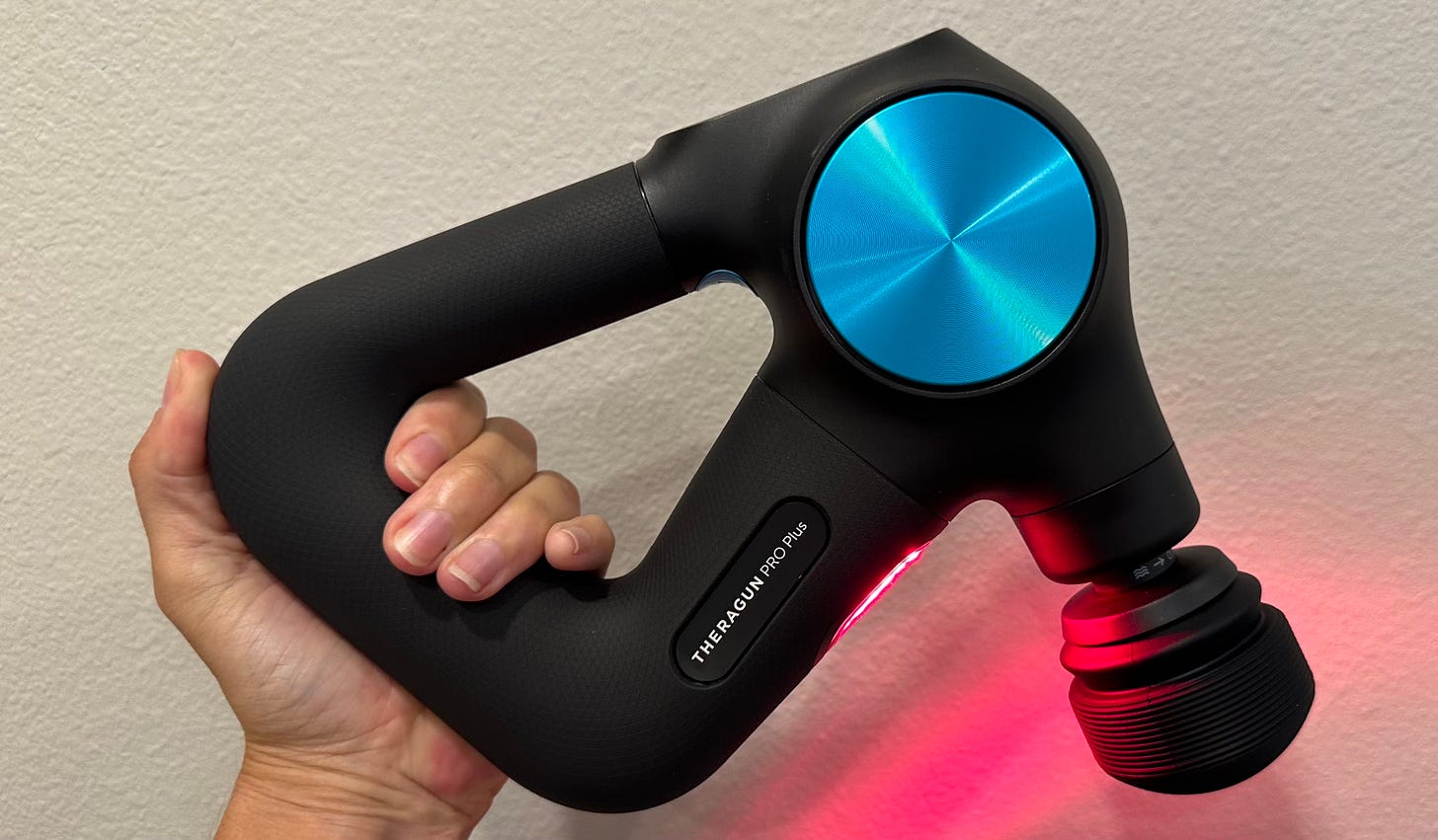Why is it so hard for so many people to straight-up say that they’re a runner? I can’t tell you how many people I’ve talked to since I started running that seem to feel the need to couch their relationship with running in self-deprecating language: “I’ve run one marathon, but I’m not a real runner,” or “I run, but I could never keep up with you,” or “people won’t respect me until I run a certain time.”
This way of talking about running really bums me out, especially because I’ve often used it towards myself. I’ve wondered whether anyone will hire me as a coach because I haven’t clocked a certain finish time; I worry about the value I bring to a brand event when I look at the other industry people there; I question why I keep trying to get faster when it always feels so. hard.
Running is an inherently objective sport: It’s measured in minutes and miles. But the way we, as a community, judge performance is too often via moving goal posts or what other runners around us are doing. It cultivates an environment of comparison and self-doubt, and that’s not fair to ourselves.
Take the Boston Marathon, for example: It’s the pinnacle of amateur running, because you have to qualify for the race by running faster than a certain time, which is determined by your age. But this year? You had to run 5:29 faster than your age group cutoff because of the sheer number of people who ran fast enough and applied to race. That coveted BQ time? It’s actually a totally arbitrary number.
Looking only at finish times, you need to run 2:03/2:14 (male/female) or faster for the marathon to be considered “world class,” or 2:09/2:21 or faster to call yourself “elite,” a 2021 study determined. The rest of us? We’re all hobby joggers, no matter how fast or slow we are, and that’s why it’s so frustrating to hear people say they’re not “real” runners just because they’ve never earned a BQ time or raced a certain distance.
There’s a reason Tracksmith was absolutely roasted on social media when they posted about their BQ singlet, reserved for runners who both qualified and registered for the 2024 Boston Marathon. It was never about the singlet; it was about the elitist, exclusionary language they used to describe a particular subset of runners’ relationship to the sport.
ICYMI (they eventually deleted the post), the caption said, “The BQ (Boston Qualifier) is not just a time. For many runners, it represents the culmination of thousands of lonely miles; months of waking up in the darkness to get the workout done; and the defeat of the fear that they were chasing an impossible dream.”
AHEM. Any runner who has trained for a marathon accumulates thousands of lonely miles, no matter what their finish time ends up being on race day. Anyone who wants to beat the summer heat or squeeze in a track session before doing your actual job knows what it feels like to wake up and work out in darkness. And anyone who signs up for any race or running event—of any distance!—may feel like they’re chasing an impossible dream.
I think it’s great that the BQ exists as a goal for so many people—but that doesn’t make it a benchmark for whether you’re a “real” runner or not. And I think time goals can be motivating, but I also think they’re very personal and should only be looked at in comparison to your running history, not anyone else’s.
When we make running a numbers game, it sucks the joy out of it. An outsized focus on quantifying things that make you feel good will make them feel more like work, which reduces enjoyment and decreases subjective wellbeing and engagement in that activity, a 2016 study published in the Journal of Consumer Research found. And you probably don’t need scientific backup to understand that comparing your running performance to others is a recipe for dissatisfaction.
Running is one of the few sports in which those who participate in it at every level can relate to each other. I was a gymnast for over 15 years, and I’ll never know what it feels like to do the tricks Simone Biles is capable of. But I sure as hell know what it’s like to run down the final straightaway of the New York City Marathon and yell, ‘fuck yeah!’ like Shalane Flanagan did in 2017—I said the same thing to myself that same year, it just took me a lot longer to get to the finish line. Does that make my experience any less “real”? Absolutely not.
What makes someone a real runner is so ridiculously simple: It’s running. That’s it.
Running is about so much more than a certain mile split or the time on the clock or the total distance. Is it making you fitter? Is it making you healthier overall? Is it making you proud of the way you’re showing up for yourself or others in the community? Is it making you a better person? Those are the real takeaways. Now where’s the singlet for that?
Thanks to New Balance for supporting the rundown
I’ve been running a ton of recovery miles (can you tell?) between my two fall marathons in the latest version of New Balance’s flagship daily trainer, the Fresh Foam X 1080v13. (Fun fact: I ran the 2017 New York City Marathon in a previous iteration!) The latest update is softer, more responsive, and lighter than ever. It’s a workhorse of a shoe that’s comfortable straight out of the box and really hugs the foot, making for a secure, stable ride. And it still has max cushioning underfoot, with 38 mm of Fresh Foam X in the heel and 32 mm at the forefoot, but enough springiness to allow for picking up the pace. If you’re looking for a do-it-all daily trainer, shop the women’s and men’s Fresh Foam X 1080v13, available now.
the rundown
The Theragun Pro+ Is the Most Ridiculous Massage Gun I’ve Ever Used
Last year, I said the Theragun Pro Gen 5 was the “Rolls Royce of massage guns” but Therabody just one-upped itself with the new Theragun Pro+. Forget the top-notch percussive therapy it offers, it also has infrared LED light therapy, vibration therapy, heat therapy, cold therapy (sold separately), and breathwork routines via a built-in biometric heart rate sensor. I have mixed feelings about the need for biometric heart rate sensor (which is also in the new Theragun Sense, and requires cradling the device in order to complete the breathwork), but I really liked the addition on the infrared LED light and the option to swap in hot and cold attachments—heated massage guns should be the norm!
You Make More Strength Gains With Supervision
One of the perks of my job is that I test a ton of at-home fitness products. I have yet to find a product that actually motivates me to do strength training at home. Turns out, I’m better off in the gym: Gains in muscle mass and certain strength measures were greater in those who did the same resistance training program supervised versus those who trained unsupervised, according to a study published this summer in the Journal of Sports Sciences. Supervision also reduced dropout and increased adherence to the program. See ya in the gym!
One Partner Runs The Marathon — And the Other Does Everything Else
It’s New York City Marathon week, and the New York Times is on it. This article is all about the burden on people in relationships with runners training for marathons. I’m sure I know many people whose partners’ can relate to the boredom of conversations that revolve around Strava stats, the complaints about long runs and track workouts, the unwillingness to eat like a runner when you’re not actually training, and the pre-9 p.m. bedtimes. I appreciate that the author attempted to acknowledge single people, although the angle here mostly revolved around dating—what I really wanted to hear about is how single people manage to juggle full-time jobs, cooking multiple meals, and maintaining social connections while training, because I’ve done this 15 times now and it’s still a struggle.
Candice Burt on The Danny Miranda Podcast
I’m actually not a huge fan of run streaks, but X (are we calling it that now?) kept pushing Candice Burt’s 200 ultramarathons in 200 days into my feed, so I listened to her interview with Danny Miranda on a recent run. To be totally honest, it wasn’t the most engaging podcast, but I’m always interested in hearing what makes people who do things like this tick. I appreciated her acknowledgement of the 26 years of running history she had before this (no overnight success here!), and how her experience led her to feel more connected with herself, nature, and some larger sense of consciousness. If you’re not up for listening, this WSJ article is also good.







A really inspiring read - for me the final 1 km of my Berlin this year was a moment I will live off for a long time when I am feeling weak or downcast about anything. It’s never about the time for me. And I’m sure I said “Fuck Yes” as I came out of the Brandenburg Tor.
I’m a runner!